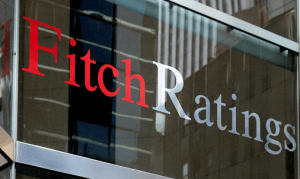Fitch affirms Ghana’s credit-worthiness at ‘B’
 The ratings agency Fitch has affirmed Ghana’s credit-worthiness at B, with negative outlooks, and this is coming a day after Moody’s downgraded the country from B2 to B3.
The ratings agency Fitch has affirmed Ghana’s credit-worthiness at B, with negative outlooks, and this is coming a day after Moody’s downgraded the country from B2 to B3.
In October 2013 Fitch lowered Ghana’s ratings from a B+ to B. In 2014, the agency affirmed the ratings at B.
In a statement issued Friday March 20, 2015, Fitch affirms Ghana’s ratings at B with negative outlooks.
In 2014, the agency stated that it dropped Ghana from B+, because: “The authorities continued to overrun on wages, interest costs and arrears, leading Fitch to expect that the government will fail to meet the 9% of GDP fiscal deficit target for this year.”
The agency notes the following factors for the downgrade: The IMF board is expected to approve Ghana’s $940 million Extended Credit Facility in April, which should provide some easing of severe external and fiscal financing pressures.
“However, Ghana’s track record of increasing spending ahead of the elections in 2008 and 2012 raises concerns about the government’s ability and willingness to meet the ambitious fiscal consolidation targets set out by the IMF,” it says.
According to Fitch, the IMF programme is intended to provide financing, policy direction and monitoring and addresses Ghana’s key credit weakness through prioritising fiscal consolidation, raising revenue and improving Central Bank credibility.
“Ahead of the programme, the authorities have introduced VAT on petroleum products, agreed to a modest public sector wage increase as well as maintaining the National Fiscal Stabilisation Levy and a special import levy,” it says.
Fitch notes that commitment to the programme should result in a recovery of donor inflows, foreign investment in the domestic bond market and reduce domestic funding costs over time, adding, “fiscal consolidation proved challenging for a second consecutive year in 2014, with revenue underperformance resulting in a higher than targeted deficit of 9.4 percent of GDP (8.5 percent in the budget) and well above the ‘B’ median of 4.8 percent.”
“In response to lower oil prices, the Minister of Finance released a revised budget in mid-March. To compensate for lower revenue, expenditure on goods and services as well as capital projects has been reduced,” it says.
Fitch states that the IMF projects that the deficit will narrow to 3.5 percent of GDP by 2017.
“Fitch considers this too optimistic given the deepening electricity crisis, which could drag growth lower, as well as the pressure that the upcoming elections will likely exert on spending,” it says.
Fitch is of the view that rising government debt, which increased to 67 percent at end of 2014 from 47 percent in 2012, combined with increased reliance on domestic debt (45 percent of total), where yields have averaged 23 percent since mid-2012 has led to a steady rise in the interest burden.
“Interest costs as a percentage of GDP rose to 7 percent in 2014 from 2.5 percent in 2011 and now account for one-third of government revenue, the highest of Fitch-rated sub-Saharan African sovereigns,” it says.
By Emmanuel K. Dogbevi
